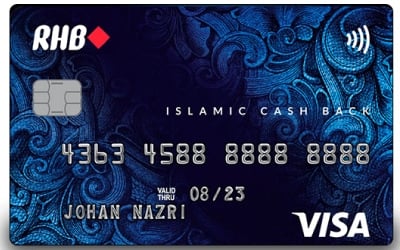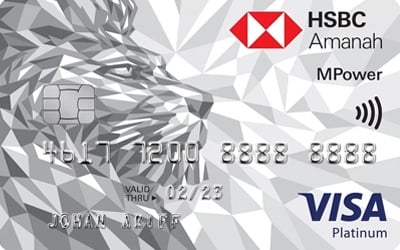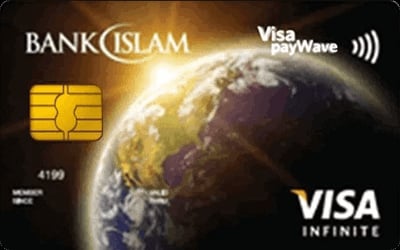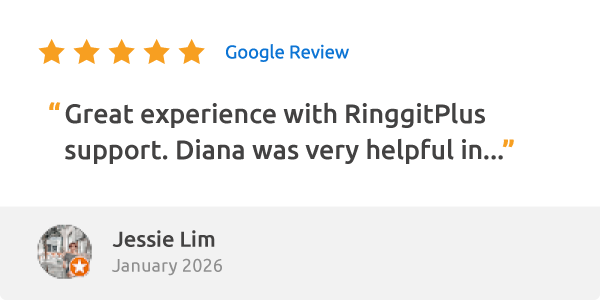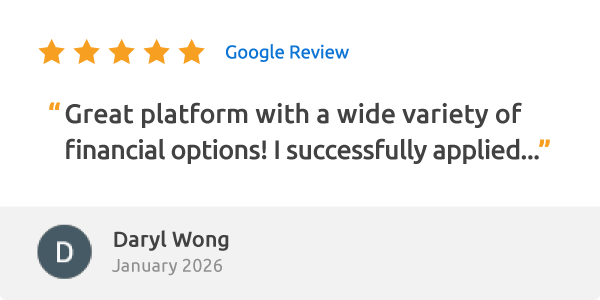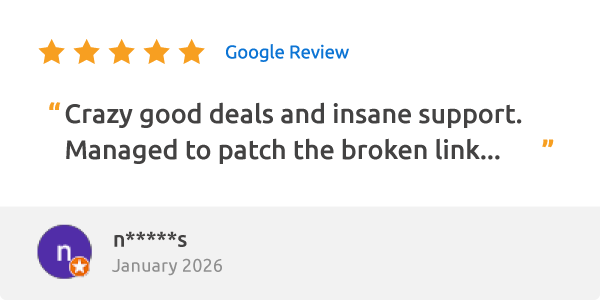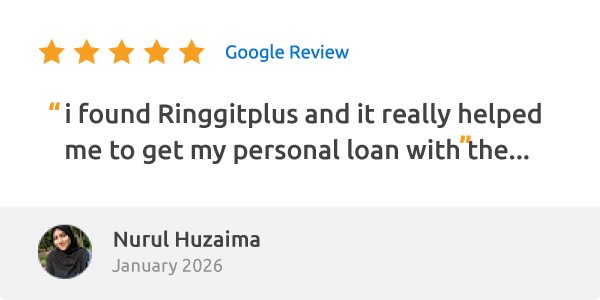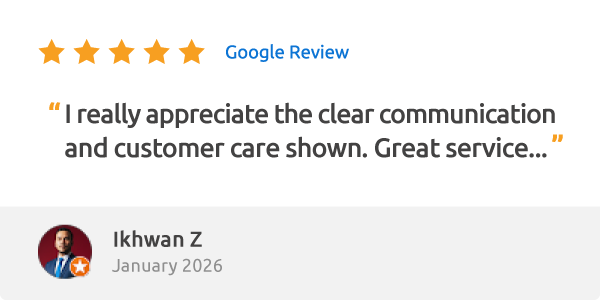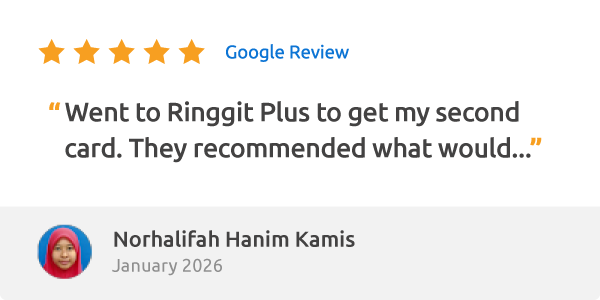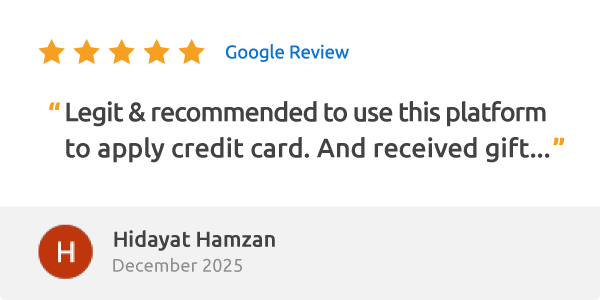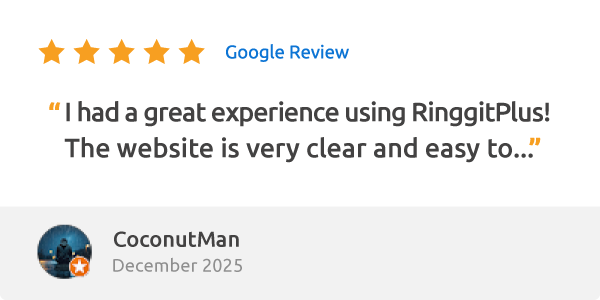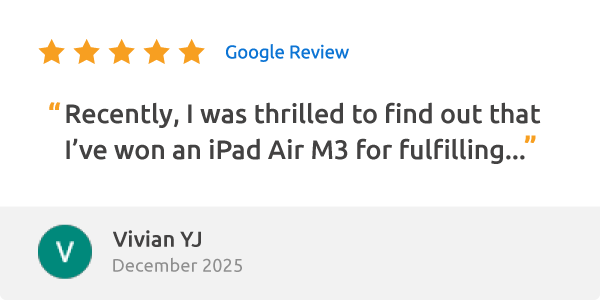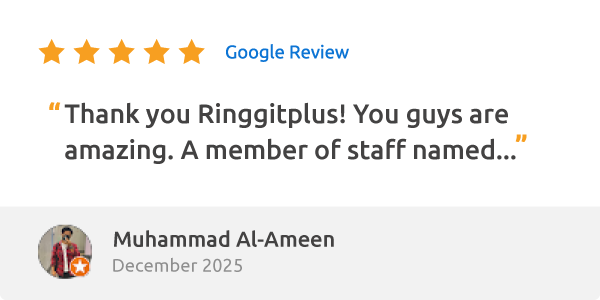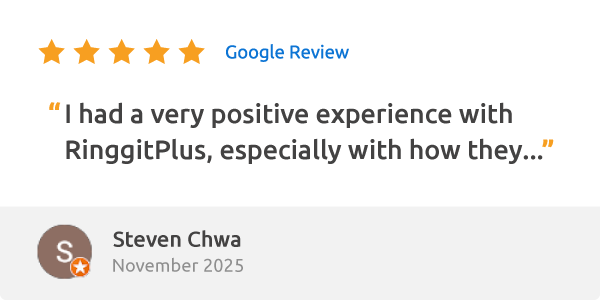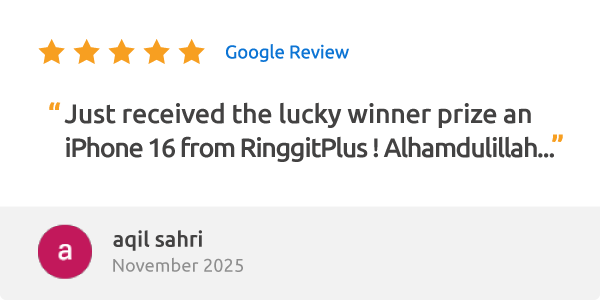What Is An Islamic Credit Card?
If you carry a balance on your credit card from month to month, the difference between a conventional card and an Islamic credit card comes down to how charges accumulate. Conventional cards apply interest that compounds on top of previous interest, which means your debt can snowball quickly. Islamic credit cards use a fixed daily profit rate instead, which doesn't compound. This makes it easier to predict exactly what you'll pay and when you'll clear your balance.
For many Malaysians, this matters beyond just the numbers. Islamic credit cards follow Shariah principles, which means they avoid riba (interest), gharar (excessive uncertainty), and transactions involving prohibited (haram) activities. But you don't need to be Muslim to benefit from this structure. The transparent, non-compounding fee system appeals to anyone who wants clearer terms and more disciplined credit card management.
In daily use, Islamic credit cards work exactly like conventional cards. You can swipe, tap, or enter your details online for purchases. The difference appears only when you don't settle your full balance within the grace period (typically 20 days from your statement date). Instead of compounding interest, the bank applies an agreed profit rate or fee that's calculated daily but doesn't accumulate on top of itself.
What Is the Difference Between Islamic and Conventional Credit Cards?
Islamic and conventional credit cards function identically for purchases and payments, but they differ fundamentally in how they handle unpaid balances and comply with religious principles.
| Feature | Islamic Credit Card | Conventional Credit Card |
| Interest/Profit Rate | Fixed profit rate (15-18% p.a., non-compounding) | Interest rate (15-18% p.a., compounding) |
| Shariah Compliance | Approved by Bank Negara Malaysia's Shariah Advisory Council | No Shariah requirements |
| Late Payment Fee | RM10-100 maximum (often donated to charity per Shariah principles) | RM10-100 maximum (kept by bank) |
| Contract Structure | Tawarruq (Commodity Murabahah) | Standard credit agreement |
| Cash Advance | Available with a fixed fee, no compounding charges | Available with interest that compounds daily |
| Prohibited Transactions | Automatically blocked (alcohol, gambling, pork) | No restrictions |
| Eligibility | All Malaysians meeting the income requirements | All Malaysians meeting the income requirements |
| Rewards & Benefits | Cashback, points, air miles, Takaful coverage | Cashback, points, air miles, and insurance coverage |
The key difference is the non-compounding profit structure on Islamic cards. For example, if you carry a RM1,000 balance at 18% p.a. on an Islamic card, you pay RM0.49 daily until cleared. The rate stays constant. On a conventional card, interest compounds, so you eventually pay interest on accumulated interest, increasing your total cost over time.
Both card types require the same documentation to apply and offer similar rewards structures. The choice comes down to whether you prefer Shariah-compliant banking or conventional banking, and whether non-compounding charges matter for how you manage credit.
What Malaysian Banks Offer in Islamic Credit Cards
Malaysian Islamic credit cards give you the same core benefits you'd expect from conventional cards: cashback, reward points, air miles, insurance coverage, and various lifestyle perks. The difference is in how the banking relationship works.
The contract structure: Islamic credit cards in Malaysia now primarily use Tawarruq (also called Commodity Murabahah), which is a Shariah-compliant arrangement where the bank purchases a commodity on your behalf, sells it to you at cost plus profit, then sells it again to convert it to cash. This structure replaced earlier contracts like Ujrah (fee-based) and Bai' Inah in late 2025, following guidance from Bank Negara Malaysia and industry bodies. The change doesn't affect how you use the card, but it provides better Shariah compliance and clearer pricing structures.
What you pay if you carry a balance: If you don't settle your full balance by the due date, you'll be charged a daily profit rate, typically 15-18% per year. This rate is applied daily but crucially doesn't compound. For example, a RM1,000 balance at 18% p.a. costs about RM0.49 per day until you clear it, and that rate stays consistent.
Late payment charges: Bank Negara Malaysia caps late payment fees at RM100 maximum (typically 1% of outstanding balance, minimum RM10). Many Islamic banks channel these fees to charity (sadaqah) rather than keeping them as profit.
Transaction screening: Most Islamic credit cards use Merchant Category Codes (MCCs) to automatically decline transactions at merchants selling alcohol, gambling services, or other non-permissible items.
Takaful coverage: Many Islamic credit cards include Takaful (Islamic insurance) covering travel accidents, purchase protection, or outstanding balance coverage. Premium cards like the Bank Islam Visa Infinite Credit Card-i include up to RM500,000 in travel accident Takaful, while entry-level cards may offer minimal coverage.
Best Islamic Credit Cards in Malaysia 2026
If you're comparing Islamic credit cards, these three offer strong value across different spending patterns and income levels.
- RHB Islamic Cash Back Credit Card-i: Get up to 10% cashback on daily essentials like groceries, petrol, and utilities, maximizing savings on your regular bills.
- HSBC Amanah MPower Platinum Credit Card-i: Earn high cashback of up to 8% on popular categories such as petrol, groceries, and e-wallets for significant everyday rebates.
- Bank Islam Visa Infinite Credit Card-i: A premium choice with up to 8% cashback on online, auto billings, groceries, and dining. It also includes airport lounge access and substantial Takaful coverage for travelers.
The table below compares the three cards on key metrics. Use this to identify which card aligns with your spending pattern and income level.
|
|
|
|
|
| Cashback rate | Up to 10% (capped at RM50/month) | Up to 8% (capped at RM80/month) | Up to 8% (capped at RM80/month) |
| Minimum monthly spend for cashback | RM2,500 | RM2,000 | RM2,000 |
| Eligible categories | Online, dining, and grocery delivery | Petrol, groceries, eWallets, local, and overseas retail | Online, auto-billings, grocery, dining (local and overseas) |
| Annual fee | RM70 for primary card | RM240 for primary card | RM777 for primary card |
| Fee waiver requirement | RM20,000 | RM30,000 annual spend | RM120,000 annual spend |
| Minimum annual income | RM24,000 (RM2,000/month) | RM36,000 (RM3,000/month) | RM100,000 (RM8,333/month) |
| Airport lounge access | No | No | Yes (6 visits/year) |
| Travel Takaful coverage | Basic | Basic | Up to RM500,000 |
How to use this table: Start by checking the minimum income requirement. Then look at the eligible categories and monthly spend thresholds. Your card should match where you actually spend money. Finally, calculate whether the cashback (minus annual fee) justifies the card. For example, if you spend RM3,000 monthly on the RHB card's eligible categories, you'll earn RM600/year in cashback but pay RM70 in annual fees (net benefit: RM530). Compare that against your other options.
Choosing the Right Islamic Credit Card for Your Spending
Islamic credit cards vary significantly in structure, so the "best" card depends on where and how you spend. Here's how to match cards to your situation:
If you spend RM2,000 to 3,000 monthly on petrol and groceries: The HSBC Amanah MPower Platinum Credit Card-i gives you 8% cashback (up to RM80/month) on these categories. That's RM960 per year in potential cashback, minus the RM240 annual fee if you don't hit the RM30,000 spending threshold — net benefit of RM720. Just make sure petrol and groceries are genuinely where most of your spending goes.
If you spend heavily on food delivery and online shopping: The RHB Islamic Cash Back Credit Card-i offers 10% cashback up to RM50/month (RM600/year) on these categories. The RM70 annual fee is easily covered if you regularly spend RM2,500+ monthly. Note that once you hit the RM50 monthly cap, additional spending earns nothing.
If you earn RM100,000+ annually and travel frequently: The Bank Islam Visa Infinite Credit Card-i justifies its RM777 annual fee through airport lounge access (worth about RM200-300/year if used) plus comprehensive travel Takaful. The 8% cashback is a bonus, but this card makes sense primarily for travellers. If you rarely travel, you're better off with a mid-tier cashback card.
Frequently Asked Questions (FAQ)
1. Can non-Muslims apply for Islamic credit cards?
Yes. Islamic credit cards are available to anyone who meets the income requirements, regardless of religion. The Shariah-compliant structure simply means the card avoids interest-based charges and prohibited transactions. These benefits appeal to anyone seeking transparent, non-compounding fees.
2. Do Islamic credit cards actually charge interest?
No, Islamic credit cards don't charge interest (riba). Instead, they use a Tawarruq (Commodity Murabahah) structure where the bank sells you a commodity at cost plus profit, which you pay back over time. The profit rate is disclosed upfront and only applies if you don't fully pay off your balance within the grace period (typically 20 days from statement date). The key difference from conventional cards is that this profit rate doesn't compound. It's calculated daily on your outstanding balance but doesn't accumulate on top of previous charges.
3. What happens if I pay late on an Islamic credit card?
You'll incur a late payment charge, typically 1% of the outstanding balance with a minimum of RM10 and a maximum of RM100 (as per Bank Negara Malaysia guidelines). These charges don't compound. Many Islamic banks donate late payment fees to charity (sadaqah), though this varies by institution.
4. What’s the minimum income to apply?
It depends on the card tier:
- Entry-level cards (Gold tier): From RM24,000 per year (around RM2,000/month).
- Mid-tier cards (Platinum tier): Typically RM36,000 to RM60,000 per year.
- Premium cards (Infinite/World tier): RM100,000 to RM180,000 per year.
Check each card's Product Disclosure Sheet (PDS) for exact income requirements.
5. Do Islamic credit cards offer the same rewards as conventional cards?
Yes, you can earn cashback, reward points, and air miles with Islamic credit cards. The cashback rates and reward structures are competitive with conventional cards, though the absolute highest-earning conventional cards sometimes edge out Islamic cards by 1-2%. That gap has narrowed significantly in recent years.
6. Do Islamic credit cards include insurance coverage?
Yes, many include Takaful (Islamic insurance) for travel accidents, purchase protection, and outstanding balance coverage. Coverage varies widely:
- Entry-level cards: Often minimal or no Takaful
- Mid-tier cards: Basic coverage (RM50,000-100,000 for travel accidents)
- Premium cards: Comprehensive coverage (up to RM500,000 for travel accidents, plus purchase protection)
Check the Product Disclosure Sheet for exact Takaful coverage details.
7. How do banks ensure Islamic credit cards follow Shariah?
Every Islamic bank in Malaysia has a Shariah Advisory Council (SAC) comprising qualified Islamic scholars who review and approve all financial products. Additionally, Bank Negara Malaysia maintains its own SAC, whose rulings are binding across the Islamic banking industry. All Islamic credit cards must receive approval from these councils before being offered to customers.
8. What happens if I accidentally use the card at a non-halal merchant?
Most Islamic banks use Merchant Category Codes (MCCs) to automatically block transactions at merchants selling alcohol, gambling services, or other prohibited items. If you attempt a transaction at a restricted merchant, it won't go through. However, MCC filtering isn't perfect, as some smaller merchants may not be properly categorized. Contact your bank's customer service if you notice a prohibited transaction that went through.
9. Can I transfer my balance from a conventional credit card to an Islamic credit card?
Yes. Islamic banks offer balance transfer facilities using the Tawarruq (Commodity Murabahah) structure. Instead of charging interest, the bank applies a one-time processing fee, and you can often access 0% profit charge promotional periods (typically 6-12 months). For example, CIMB Islamic regularly offers 0% profit charge for 12 months with a 3% one-time processing fee. On a RM10,000 balance transfer, you'd pay RM300 upfront but no additional profit charges for the year.
10. Can I withdraw cash from an Islamic credit card?
Yes, though it's expensive and not recommended. Islamic credit cards offer cash advances through Shariah-compliant structures. You'll typically be charged:
- A service fee: Around 5% of the withdrawn amount or RM10 (whichever is higher)
- A daily profit charge: Usually 0.04-0.05% per day (about 15-18% per year)
For example, withdrawing RM1,000 costs RM50 immediately (5% fee) plus about RM0.49 per day until repayment. Cash advances don't have a grace period. Charges start immediately. A personal loan typically offers better rates if you need cash urgently.
11. Are profit rates on Islamic credit cards higher than interest rates on conventional cards?
Not necessarily. Profit rates (typically 15-18% p.a.) are comparable to conventional card interest rates. The key difference is that Islamic card profit rates don't compound. For short-term balances (1-2 months), the difference may be small. For longer-term balances (6+ months), the non-compounding structure can save you money, though the best approach is always to pay off your balance in full each month.
Apply for an Islamic Credit Card
Islamic credit cards offer the same rewards and payment convenience as conventional cards, with transparent fee structures that avoid compounding interest. Whether you're choosing an Islamic card for religious reasons or simply prefer non-compounding charges, Malaysian banks now offer competitive cashback, rewards, and travel perks across all card tiers.
When you apply through RinggitPlus, you're often eligible for exclusive sign-up gifts upon approval.
Not sure which card fits your spending pattern? Use our Credit Card Recommendation Tool to get personalized suggestions based on your monthly spend and category preferences.
Compare cards, check eligibility requirements, and apply online through RinggitPlus.














































